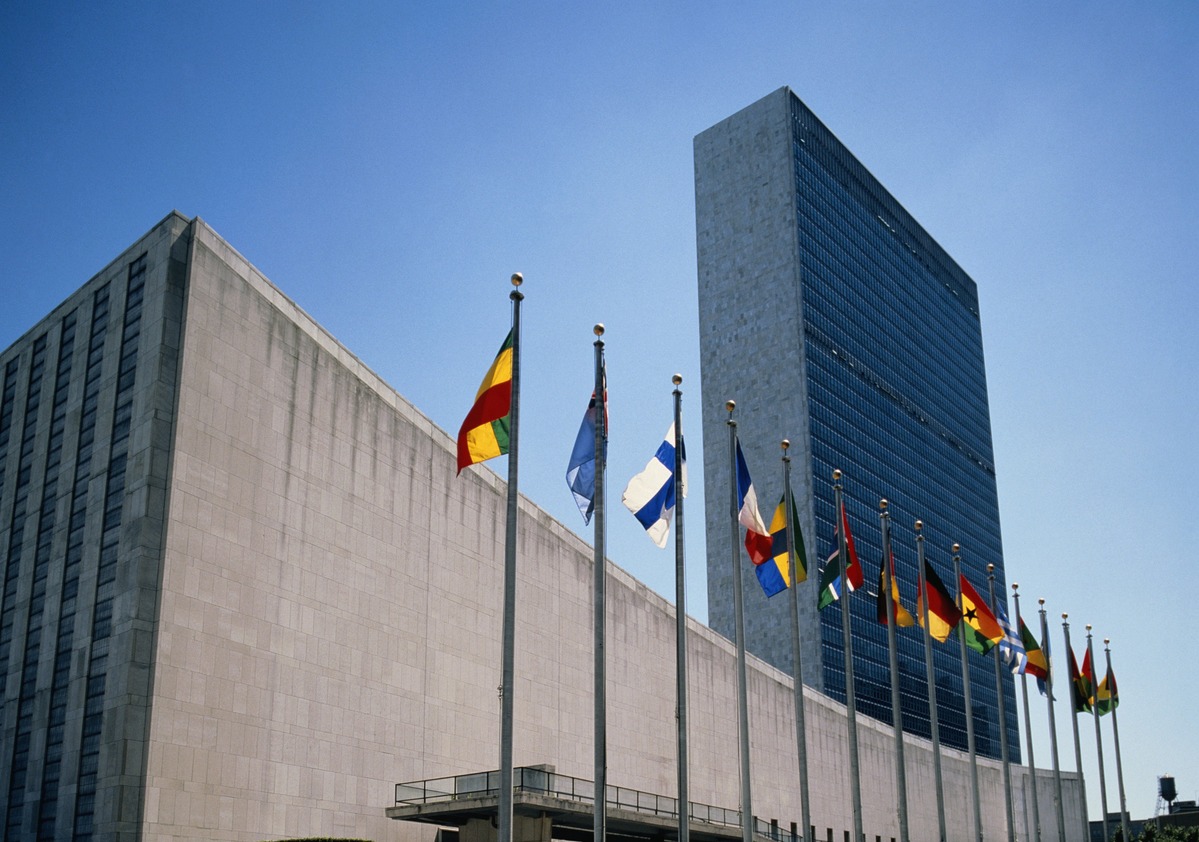A new world order with a shared future
By Koh King Kee | China Daily | Updated: 2021-02-06 09:06

China envisions a world order that is fair, equitable and just, built upon the spirit of openness, inclusiveness, mutual respect, and love for Mother Earth. As President Xi Jinping said in his address to the World Economic Forum Virtual Event of the Davos Agenda on Jan 25: "The problems facing the world are intricate and complex. The way out of them is through upholding multilateralism and building a community with a shared future for mankind."
As the world struggles to emerge from the devastating impact of the COVID-19 pandemic, Xi's speech is a timely reminder that the world must stand united against the novel coronavirus, as it is humankind's common enemy.
Xi put forth the concept of "a community with a shared future" in his speech at the Moscow State Institute of International Relations in 2013. "Mankind, by living in the same global village within the same time and space where history and reality meet, has increasingly emerged as a community with a shared future in which everyone has in himself a little bit of others," he said.
Guiding principle of international relations
Since then a community with a shared future for mankind has been promoted by China as its concept of global governance and guiding principle of international relations, manifesting its foreign policy goal of peace, equality, development and win-win cooperation.
"A community with a shared future for mankind" was written into the Communist Party of China's Constitution and added to the preamble to the country's Constitution the following year. It was also written into several UN resolutions.
The concept has often been the subject of Xi's speech at international events. In September 2015, he laid out the road map for building a community with a shared future for mankind at a United Nations summit. And in his speech at the UN Office in Geneva on Jan 18, 2017, he explained why and how to build such a community.
A community with a shared future for mankind is China's answer to the call of a world beset by myriad challenges and risks, ranging from terrorism, economic downturn and climatic change to protectionism and anti-globalization. China's development has been possible because of the world, and China has contributed to the world's development, and the country will continue to pursue a win-win strategy of opening-up, and share its development opportunities with other countries.
Initiative of win-win, shared development
On the Belt and Road Initiative, Xi said it aims to achieve win-win and shared development. Highlighting that diversity is inherent to civilizations, Xi said no civilization is superior or inferior to others.
Stressing that Earth is humankind's only home, Xi, in his speech at Geneva, said: "Clear waters and green mountains are as good as mountains of gold and silver. We must maintain harmony between man and nature and pursue sustainable development." And to protect the planet, countries must pursue green development and advance the 2030 UN Agenda for Sustainable Development.
The Belt and Road Initiative, a mammoth transcontinental connectivity project, aims to create new drivers of common development. Through the initiative, China is sharing its technologies and development experiences, as well as providing financial support, to build or improve infrastructure facilities in Belt and Road countries.
China's rise as the world's second-largest economy has been described by the World Bank as the fastest sustained expansion by a major economy in history. But while the leaders of many developing countries admire China's alternative development model, and see the country as an important trade partner and a source of investment, it has unnerved some Western countries, because they fear China could end their control of the world order, which they built and which brought prosperity to the post-war world.
As such, they deem China's rise as a threat to the liberal global order. In particular, the United States views China as an imminent challenge to its global supremacy, and a power with the ambition of changing the world order.
Vision of new global order
The COVID-19 pandemic has accelerated the change in global power dynamics. China was the only major economy to achieve positive GDP growth in 2020-and it is expected to overtake the US as the largest economy by 2028. The US, meanwhile, is still struggling to contain the pandemic and its international image has taken a beating, mainly because of the unilateral and regressive policies of the previous administration.
According to a recent pan-European survey by the European Council on Foreign Relations, more than 60 percent of the respondents said "yes" when asked if the US' political system has "broken". And while one-third of the respondents said US President Joe Biden will not be able to save the country from decline, the majority of them said China will become more powerful than the US within the next decade.
With the changing geopolitical landscape, many are asking what kind of world does China want?
China has global ambitions, boosted by its confidence in largely containing the epidemic, Rana Mitter, professor of history at Oxford University, says in a recent article, "The world China wants". He writes: "A state of that size cannot be expected to participate in the global order solely on the terms of its rivals," and yet "China is not seeking to impose a replica of its own system on other states".
Bigger say in world order
Unquestionably, a rising China that accounts for more than 16 percent of the global GDP and has contributed about 30 percent to global growth over the past decade would want a bigger say in shaping the global order.
China sees inequity and unfairness in the existing world order. But since it has benefited from and achieved rapid economic development under the same world order, it has no intention of destroying it, much less supplanting it. China's approach is reformative, not transformative.
China envisions a world order based on the concept of a community with a shared future for mankind. It wants a world of common prosperity built through consultation and joint efforts.
The author is president of the Centre for New Inclusive Asia. The views don't necessarily reflect those of China Daily.
If you have a specific expertise and would like to contribute to China Daily, please contact us at opinion@chinadaily.com.cn, and comment@chinadaily.com.cn.
























